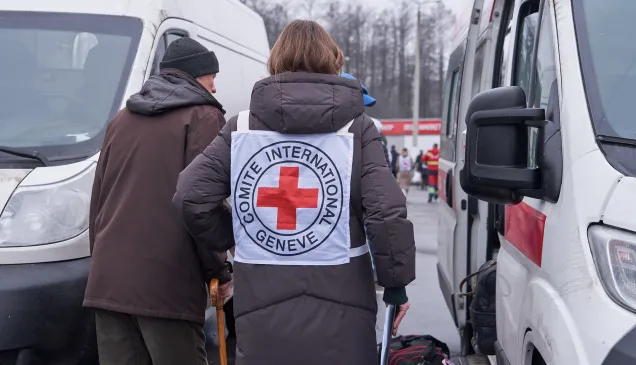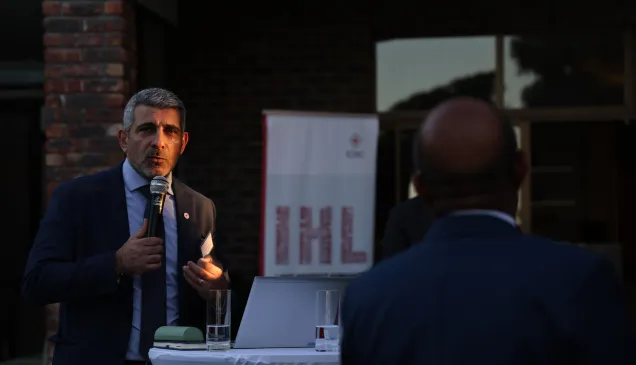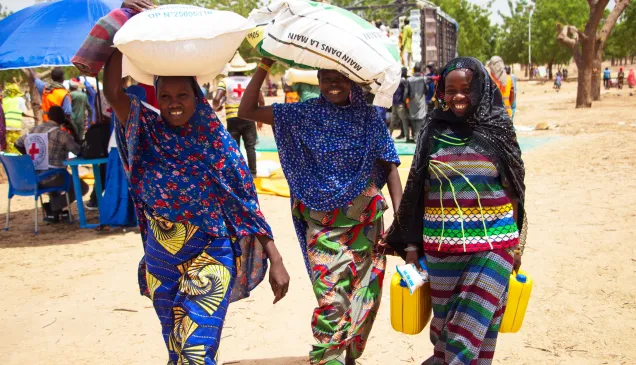World Humanitarian Summit: ICRC's comment on the UN Secretary General's Report
In February 2016, the United Nations Secretary General released his Report on the World Humanitarian Summit (WHS). The report calls on States, United Nations agencies, civil society and all parties to conflict to ensure greater respect, protection and assistance for people affected by the consequences of armed conflict and disaster. It outlines an Agenda for Humanity, which States and other actors are encouraged to endorse at the World Humanitarian Summit on 23 and 24 May.
An opportunity to highlight both cooperation and distinctiveness
The UN and the ICRC are part of a larger international humanitarian response to armed conflict and disaster. We share many concerns and work to similar goals on several humanitarian issues. Yet our governance, mandates, scope, approach and humanitarian activities are distinct from one another, and the WHS is a good opportunity to sharpen our mutual understanding of how we can cooperate and complement one another, and how we must remain distinct.
The ICRC's position in the run-up to the WHS
- The ICRC has followed the WHS process closely and has studied the Secretary General's Report with great interest. We take this opportunity to comment on specific aspects of the Report, which are particularly significant to the ICRC as a neutral and independent humanitarian actor.
- The ICRC agrees strongly with the Secretary General's call for greater conflict prevention. We join the UN in urging States to uphold this primary duty of peaceful international relations.
- The ICRC shares the Secretary-General's view that adherence to IHL is the single most important way to reduce human suffering in armed conflicts. We reaffirm our willingness to work with the Government of Switzerland on a possible new Forum of States to improve compliance with IHL as decided in the respective Resolution of the International Conference.
- The ICRC welcomes the Report's explicit concern for greater practical protection of particular vulnerable groups. At the same time, the ICRC asks the UN to give due attention to all non-combatants and to men's particular risks of summary execution, unlawful detention and forced conscription.
The ICRC also wishes to express some concerns about the new paradigm proposed in the Secretary General's Report.
- The ICRC is concerned that, by wrapping humanitarian action into the wider project of the Sustainable Development Goals, the Agenda for Humanity risks obscuring the distinct and vital role of humanitarian action. While the ICRC is well aware that much humanitarian action in protracted conflict is rightly long term, we ask that the Summit give due recognition to the specific role of humanitarian action in meeting urgent needs rather than ending needs.
- The ICRC also asks that the Summit recognize the distinctions between contexts of armed conflict and contexts of disaster, and what constitutes feasible humanitarian responses in each.
- The ICRC welcomes the new paradigm's determination to increase the role of local actors. We also ask for more explicit recognition at the Summit of the necessity for impartial international organizations in armed conflicts, as required by IHL.
- Last but not least, the ICRC hopes that the Summit will formally recognize the diversity within humanitarian actors today and acknowledge that diversity and complementarity are the best way to ensure better protection and assistance for people in the future.



